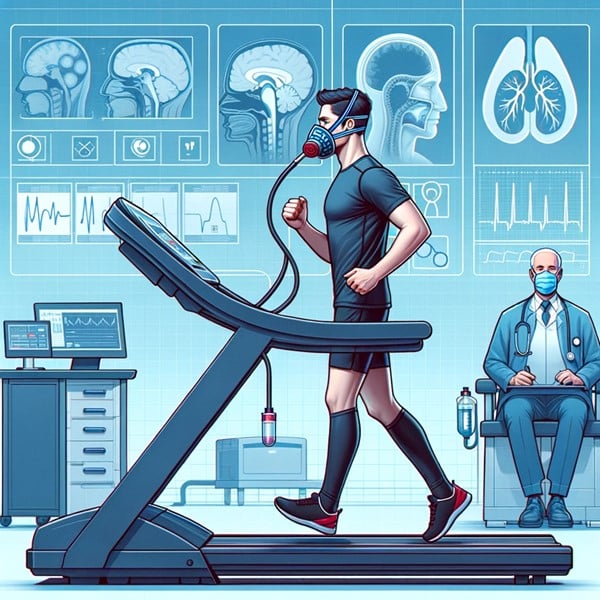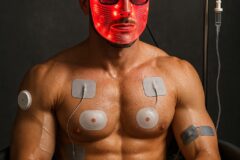Preventive health screenings and treatments are essential tools for those looking to take a proactive stance on their health.
These methods are designed to identify potential health issues early, potentially improving health outcomes and providing peace of mind.
As such, we’ve put together a guide that delves deeper into various preventive care options, outlining their purposes, benefits, drawbacks, and costs, along with who might benefit the most from each.
1. Detailed Lab Panels (e.g., InsideTracker, Function Health)
- Description: Think of these like a detailed health report card. The tests analyze blood samples to evaluate numerous biomarkers related to nutrition, metabolism, and risk for diseases like diabetes or heart conditions.
- Why People Get Them: To uncover hidden health risks and tailor lifestyle choices more effectively.
- Pros: Personalized health insights; can guide dietary and lifestyle adjustments.
- Cons: Can be expensive and may lead to anxiety or unnecessary treatments if results are misinterpreted. Unless prescribed, NJ residents have to drive to PA to get the panels done.
- Cost Range: $200 – $600.
2. Whole Body MRIs (e.g., Prenuvo)
- Description: This imaging technique uses magnetic fields and radio waves to create detailed images of organs and tissues throughout the body.
- Why People Get Them: To detect a range of health issues, including tumors, organ abnormalities, and vascular diseases, often before symptoms appear.
- Pros: Non-invasive and comprehensive; no exposure to ionizing radiation.
- Cons: High cost, potential for false positives leading to unnecessary follow-ups.
- Cost Range: $1,000 – $3,000 per scan.
3. Cancer Screening (e.g., Galleri)
- Description: These screenings use blood tests or other methods to detect cancer cells or DNA in the body, aiming to find cancer at an early stage.
- Why People Get Them: For early detection of various cancers, especially in individuals with a high risk or family history.
- Pros: Potential to catch cancer early; some tests screen for multiple cancer types.
- Cons: Possibility of false positives or negatives; anxiety from testing.
- Cost Range: $500 – $1,000 per test.
4. DEXA Scan for Body Composition and Skeletal Health Analysis
- Description: Dual-energy X-ray absorptiometry (DEXA) scans measure bone mineral density and body composition (fat and muscle mass).
- Why People Get Them: To assess risk of osteoporosis and get an accurate measurement of body composition.
- Pros: Detailed information on bone health and body composition.
- Cons: Involves exposure to a small amount of ionizing radiation; cost can be a factor.
- Cost Range: $100 – $300 per scan.
5. RMR (Resting Metabolic Rate) Analysis
- Description: This test measures how many calories your body burns at rest, providing insights into your metabolism.
- Why People Get Them: To create personalized diet and exercise plans based on metabolic needs.
- Pros: Helps in designing effective weight management strategies.
- Cons: Cost may not justify the benefits for everyone; not essential for overall health.
- Cost Range: $75 – $250 per test.
6. VO2 Max Cardiorespiratory Fitness Testing
- Description: This test measures the maximum amount of oxygen a person can utilize during intense physical activity, indicating cardiorespiratory fitness.
- Why People Get Them: To assess and improve athletic performance and cardiovascular health.
- Pros: Provides a benchmark for cardiovascular fitness and endurance.
- Cons: More relevant for athletes; can be expensive for a non-essential health metric.
- Cost Range: $100 – $400 per test.
7. At-Home Lab Testing for Hormones, Food Sensitivities, etc.
- Description: These kits allow individuals to test for various conditions such as hormonal imbalances or food sensitivities from the convenience of their homes.
- Why People Get Them: For an easy and initial health assessment without visiting a healthcare facility.
- Pros: Easy to do and a good starting point for further investigation.
- Cons: Accuracy and reliability can vary; results may be misleading without professional interpretation.
- Cost Range: $50 – $200 per kit.
Conclusion
While preventive health screenings offer valuable insights and early detection of potential health issues, they come with varying costs and considerations, such as anxiety from testing and potential exposure to radiation.
It’s important for individuals to weigh these factors and consult with healthcare professionals to determine the most appropriate screenings based on your goals, personal health history, and risk factors.






